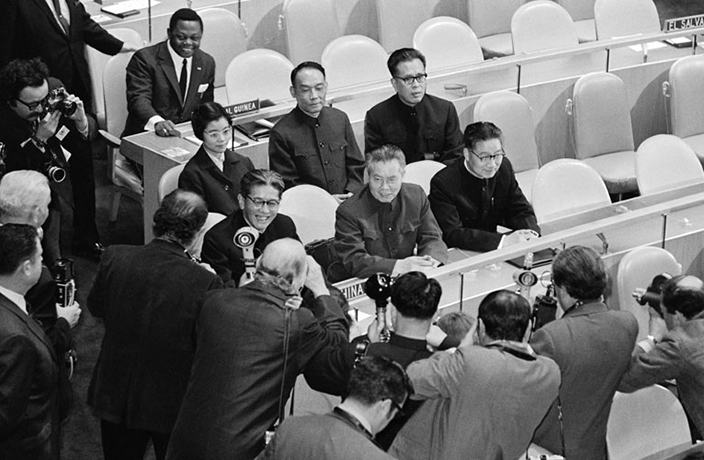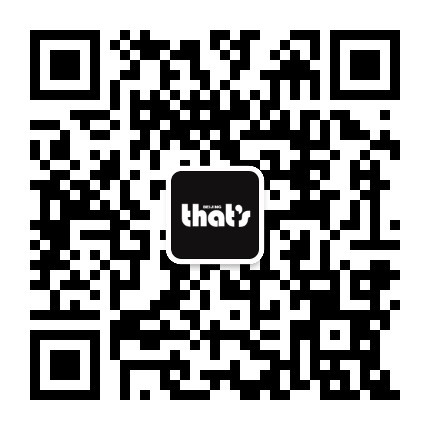Throwback Thursday is when we trawl through the That's archives for a work of dazzling genius written at some point in our past. We then republish it. On a Thursday.
By Zhijie Shao
In the summer of 2004, Wang Chong was in the US covering the presidential election primaries for the China Youth Daily. Having failed to secure interviews with any of the main candidates, he read a story about a rising star in the Illinois State Senate in a free newspaper at his hotel, and decided to go and hear him speak.
That afternoon at a baseball field in Springfield, Illinois, Wang ended up being so impressed by what he heard that - against his journalist principles – he approached the young Senator and asked if they could take a photo together. The Senator’s name was Barack Obama, and he told Wang, “You are the first Chinese journalist I’ve ever met.”
Obama’s speech had made Wang think of Martin Luther King, a man whose words he was well versed in - he had won third place in a national English speaking contest by reciting the complete “I Have a Dream” speech. Obama’s charisma had had an instant effect on Wang, "It wasn't like the speeches he gives now that he's President; it was just very passionate and spontaneous.”
Returning home to China, Wang wrote a “very emotional piece” entitled He Might Be America’s First Black President. “I’d never written anything like that as a journalist,” says the 37-year-old. “I was just overwhelmed.”
Wang’s early encounter with the would-be symbol of hope inspired another trip to the US in 2007. He decided to turn his experiences into a book, and in the fall of 2008 published Behind The Vote: A Perspective on US Elections and Political Culture, in which he shared his personal observations on American democracy, using Chinese cultural references to make the subject more accessible to his readers.
When Obama had won the race to become the presidential candidate for the Democratic Party, Wang had sent him a congratulatory email, receiving the reply: “Let’s witness history together.” And as Obama drew closer to victory, Wang’s encounters with him drew attention from international media, including the Wall Street Journal and the New Yorker.
When Obama finally made history and won the 2008 election that would make him America’s first black president, Wang knew that the significance of Obama’s race held meaning even to Chinese people, telling the New Yorker, “Ethnic discrimination exists very deeply in Chinese minds.”
“Americans are more pragmatic,” says Wang, now Deputy Director of Phoenix New Media’s Internet Department. “Most American people didn’t vote for Obama because he’s black. But Chinese people see another story — rags to riches – because we’re still quite aware of ethnic and social class divisions. Our society is like that, so we naturally see others from the same perspective.”
While Wang knows that culturally embedded stereotypes are the main reason Chinese and American people do not see the 2008 election in the same way, it was stereotypes that he relied on to help Chinese readers understand American culture in his book. Adjectives such as “arrogant,” “pragmatic,” “selfish,” and “money-worshipping,” - though put in quotation marks denote “so-called” - were all used so Chinese readers could make sense of the “American character.”
“I like America. That you can print,” Wang says, smiling. With a Master’s degree in International Relations from Peking University, he sees himself as a “standard libertarian.” As he does in his book, he often expresses his view on the Western superpower in such a cheerful tone that it sounds like a half-joke.
Wang was glad to see Mitt Romney become the Republican candidate for 2012, as it would be “someone from a minority versus someone from a non-mainstream religion. That’s exciting.”
An avid NBA fan, he draws an sporting analogy. “The tenacity of Mormons, you see, is like the Utah Jazz,” laughs Wang. “It is a bit like Karl Malone playing against Jordan. A glorious defeat.”
And just as basketball is taking off in China, Wang hopes its politics may become more like that of America. “If only we can have an election someday…” he says. Perhaps he’s only half-joking.
This article first appeared in the October 2012 issue of That's Shanghai. To see more Throwback Thursday posts, click here.






















0 User Comments